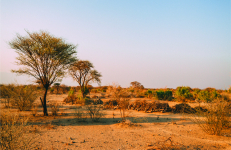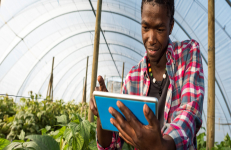One World—One Health

“Efforts to restore the world’s degraded forests and landscapes must be scaled up to reach international targets such as the AFR100 and others by 2030. To date, 30 African countries and other entities have committed to restoring over 125 million hectares, therefore, making significant advances in increasing funding, empowering local stakeholders and enhancing technical assistance for forest and landscape restoration in Africa.” This was echoed by multiple speakers at this year’s Global Landscape Forum (GLF) Biodiversity Digital Conference.
Halting biodiversity loss is essential to tackle the climate, food, and global health crises, but how to turn ambitious green recovery pledges into concrete solutions that are feasible to implement and fund on a large scale? In the run-up to 2021’s global biodiversity talks in Kunming (China) and the UN Food Systems Summit, the GLF Biodiversity Digital Conference brought together some of the world’s most influential voices in the environmental, health, and financial fields to propose specific pathways for recovery.
The event was held on October 28 to 29 and presented new evidence and launched major reports on issues such as the reduction of disease spillover from wildlife to humans and the creation of a global standard on environmental health. It also offered a chance to explore hot topics at the heart of 2021 talks such as the spread of emerging diseases along wildlife value chains; the conservation of the Amazon; the transformation of food systems; the payment for ecosystem services; the future of protected areas in the wake of COVID-19, and China’s role as the host of the 2021 Biodiversity talks.
Furthermore, the event explored issues at the heart of the post-2020 Biodiversity framework as well as the UN Decade on Ecosystem Restoration, the 2021 UN Food Systems Summit including green recovery efforts from COVID-19.
The Global Landscapes Forum (GLF) is the world’s largest knowledge-led platform on integrated land use, dedicated to achieving the Sustainable Development Goals and Paris Climate Agreement. The Forum takes a holistic approach to create sustainable landscapes that are productive, prosperous, equitable, and resilient and considers five cohesive themes of food and livelihoods, landscape restoration, rights, finance, and measuring progress.



